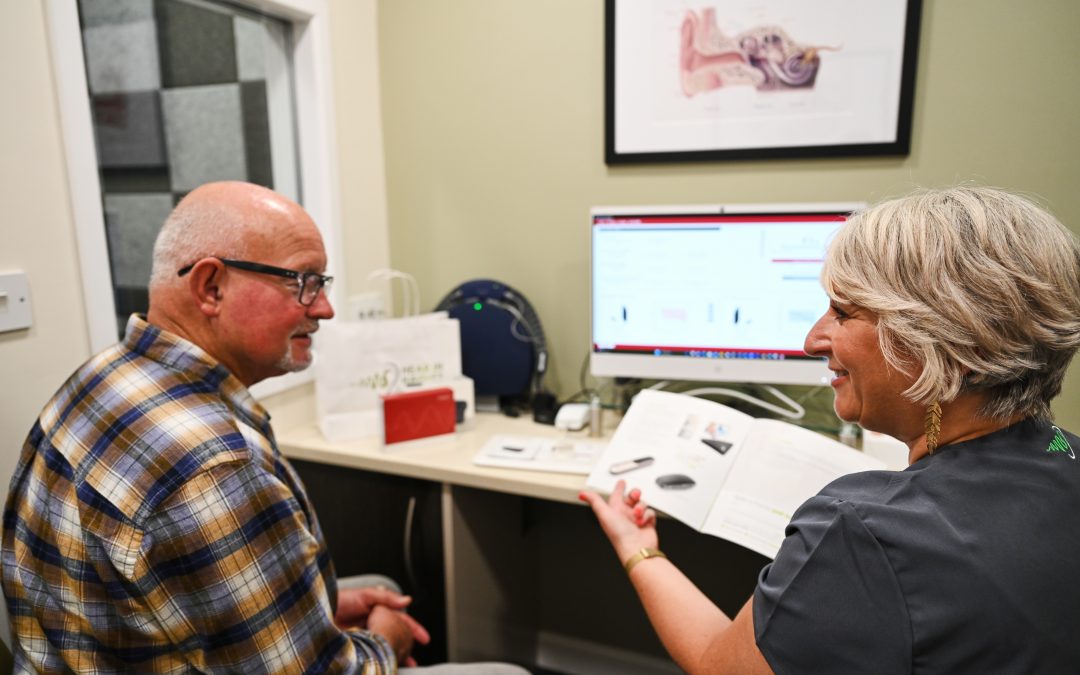In the UK, many audiologists start their careers working either within the National Health Service (NHS) or one of the larger ‘High Street’ providers to gain experience and expertise. However, there often comes a point in their professional journey when some audiologists consider going it alone. There are many benefits of establishing an independent audiology practice and in this blog, we will delve into this transitional process, the challenges faced, the advantages gained and how The Audiology Academy can support you.
Reasons for Transitioning
There are several reasons why audiologists choose to become an independent practice operator
- Greater Autonomy – establishing an independent practice allows greater autonomy and control over the services provided. Audiologists can tailor their offering to meet the individual needs of their patients. They are free to implement innovative practices, offer a wider range of services, and use the latest technology without being restricted by NHS guidelines and regulations for example.
- Financial Benefits – Beyond the basic salaries offered in the NHS, independent audiologists have the opportunity to grow their businesses and potentially earn a higher income. However, it’s important to note that the financial aspects of independent practice can be uncertain, particularly during the initial stages.
- Constraints – the NHS, as fantastic as it is, has long waiting lists and limited appointment availability for patients. Those working for the large national businesses are often tied to a particular manufacturer. Audiologists who transition to independent practice can offer more flexible scheduling, reduced waiting times, and improved patient care, addressing the growing demand for audiology services.
Challenges faced in the Private Sector
Transitioning to an independent audiology practice is not without its challenges. Building a patient base and referral network is one of the initial hurdles faced by audiologists in this transition. In the NHS, patient referrals are often automatic, whereas in private practice, establishing relationships with doctors and other healthcare professionals becomes crucial for generating referrals.
Setting up and managing the administrative aspects of an independent practice can also be daunting. Audiologists must navigate through legal requirements, financial management, marketing, and more. It may be necessary to seek professional advice or collaborate with experienced practice managers to ensure a smooth transition.
Furthermore, the reliance on a single employer is replaced by the responsibility of managing the entire practice. This transition requires a shift in mindset, as audiologists must develop business acumen and hone their entrepreneurial skills to thrive in the competitive private audiology market.
Benefits of Establishing an Independent Audiology Practice
Despite the challenges, there are many advantages and benefits of establishing an independent audiology practice. Being an audiologist within the private sector offers autonomy and control over patient care; allowing audiologists to implement innovative treatment approaches and offer a more personalised experience.
Financially, independent audiology practices can provide a more stable income in the long run. By diversifying services and expanding their patient base, audiologists may be able to extend their reach and build a sustainable business model. Furthermore, the ability to set their own prices for services may offer increased financial opportunities.
Perhaps most importantly, independent practice allows audiologists to establish stronger connections with their patients. The luxury of spending more time with patients, providing individualised care, and building a long-term relationship contributes to higher patient satisfaction and better outcomes.
How can The Audiology Academy support you?
Our team have a wide range of backgrounds and have worked in or alongside the NHS for several years. We know the pros and cons of both sides of the audiology world. Working as an independent audiologist requires a fresh set of skills which we are looking at with a view of offering courses to plug those skills gaps. Our first is “Audiology isn’t sales; its great customer care” – a three days sales training course. It is proving to be very popular and demonstrates an appetite for personal development support.
Conclusion
The transition from working ‘for’ and employer to establishing an independent audiology practice presents a unique journey for audiologists. Although it comes with challenges such as building a patient base and managing the administrative aspects, the advantages of autonomy, financial stability, and improved patient care make the transition an enticing prospect. As audiologists continue to play a crucial role in diagnosing and treating hearing impairments, the growth of independent audiology practices is likely to contribute positively to the field.
